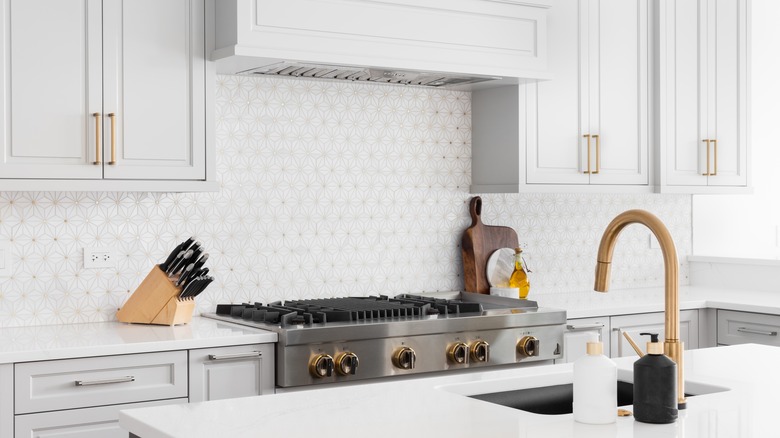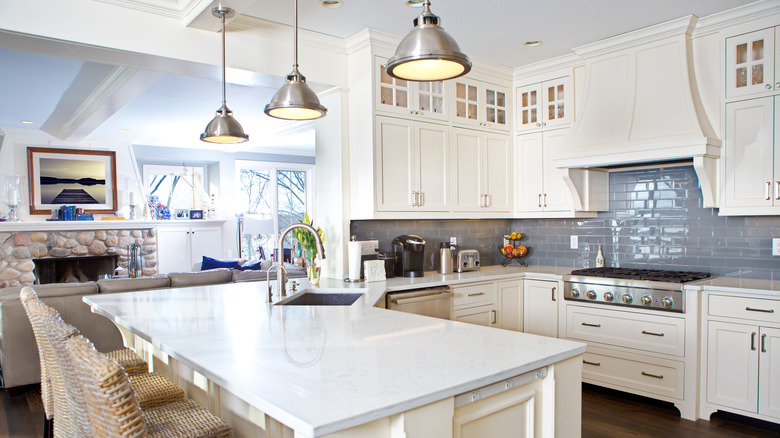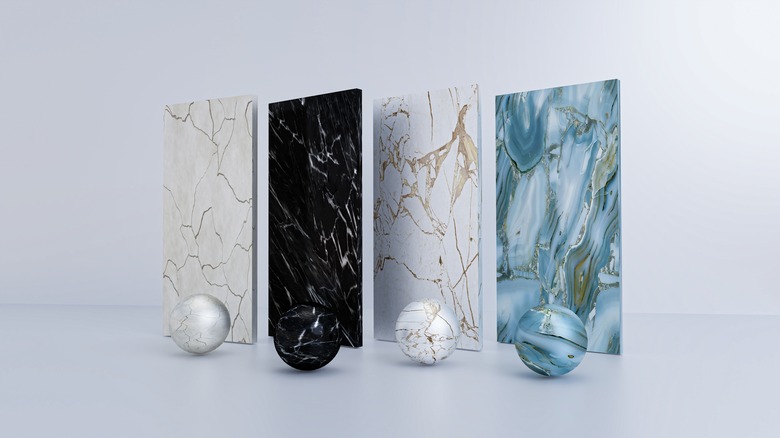The Pros And Cons Of Quartz Countertops In The Kitchen
Whether you're thinking about redoing an outdated kitchen or are just really into home improvement wisdom, there's a thing or two you should know about quartz countertops. As with everything in life, there are pros and cons to installing these countertops in your kitchen — but the good news is there are far more pros than cons (and the negatives are pretty low on the list of concern for most folks). Quartz counters should be a strong contender for any kitchen remodel, and if you haven't considered them before, take this as your sign.
Quartz countertops are versatile, strong, and bring elegance to any size kitchen (you can also use quartz in bathrooms and fireplace mantles). Depending on your priorities, one of the great things about quartz is that these counters are human-made, and unlike natural-stone countertops like granite, quartz counters are made with a resin composite — allowing you can get them in just about any size, shape, and color you like.
The pros of quartz
So what's so great about quartz countertops? Well firstly, they're tough as nails. Unlike granite or marble (which are vulnerable to chipping and staining), quartz can take a bit of a beating with little to no signs of wear. You can even cut directly on quartz surfaces, so you never have to fool with a cutting board and it's many follies again. These surfaces are nonporous, so they don't absorb liquid or stains like other natural countertops — leaving onions as the only thing in the kitchen to be crying about (but not if you know how to chop them properly).
In addition to its durability, quartz gives a sharp, clean aesthetic to your kitchen. It's easy to slot these countertops into almost any style house because you can get them made in all shapes — be it a waterfall island countertop or a standard slab. Quartz countertops are typically made to order, so there's room for as much customization as you'd like. Because they are human-made, quartz countertops come with fewer (meaning virtually no) imperfections, such as cracks and fissures, which are so common to granite and marble. These countertops also perform well in resale, if that's a priority for you.
The cons of these countertops
There are a few downsides to quartz countertops. They're negligible on the whole, but still important to know if you're considering going all in on the quartz. Firstly, you'll have to skip these countertops if you're looking to renovate your outdoor kitchen. Quartz is sensitive to UV rays, and using them outdoors will lead to the discoloration and deterioration of the material. This is to say that quartz countertops must remain indoors, and indoors only.
Quartz countertops are one of the pricier materials you can buy, ranging anywhere from $80-$150 per square foot. The resin and filler used in the composite can be sensitive to heat damage, so you really want to make sure you have trivets and hot pads to hand when cooking in a quartz kitchen. One of the biggest downsides of these counters for a lot of folks is that they're not actually a natural material. It really varies person to person, but some people don't like that quartz counters are manufactured. All in all, these are hardly dealbreakers — as long as your budget permits.


